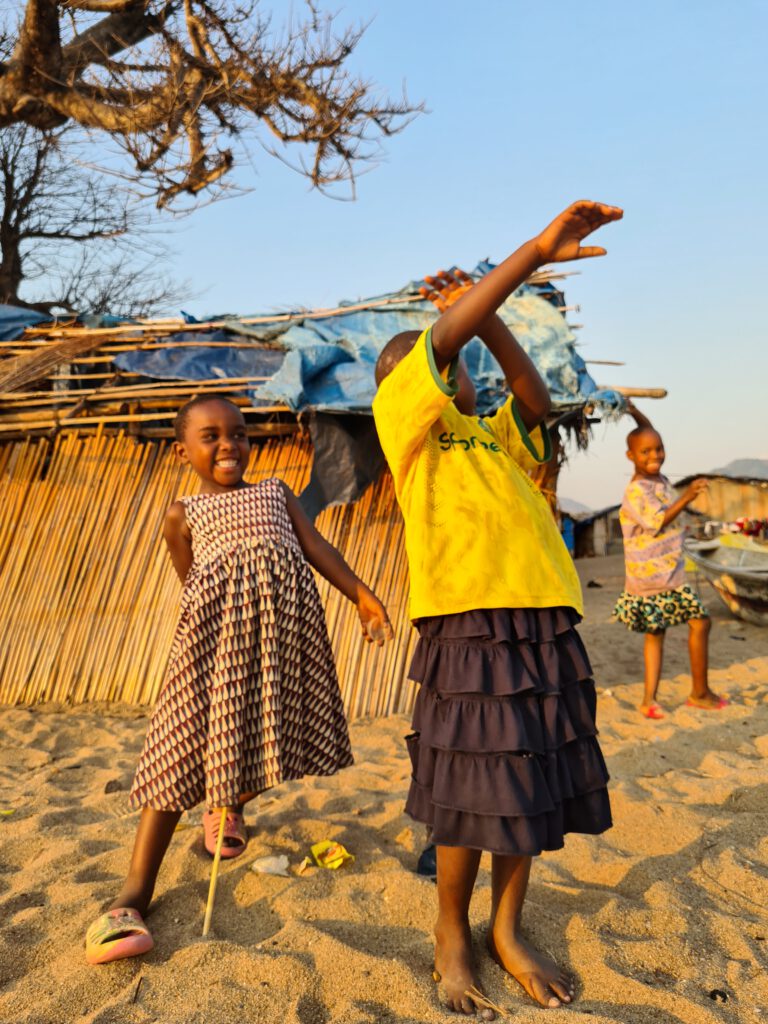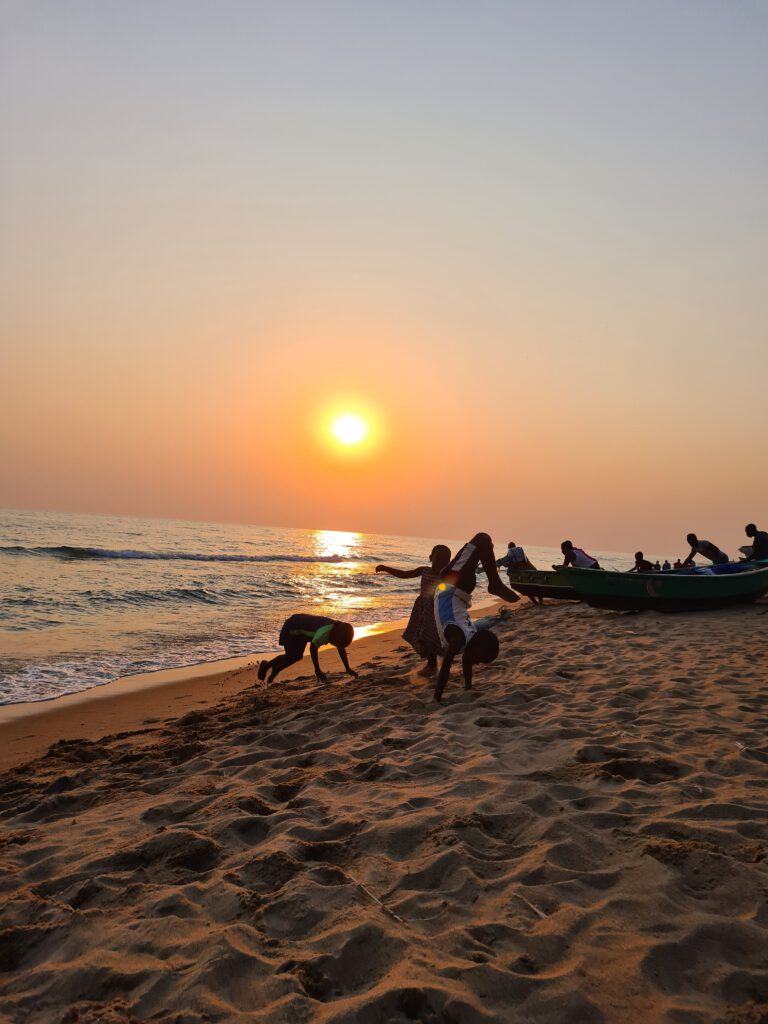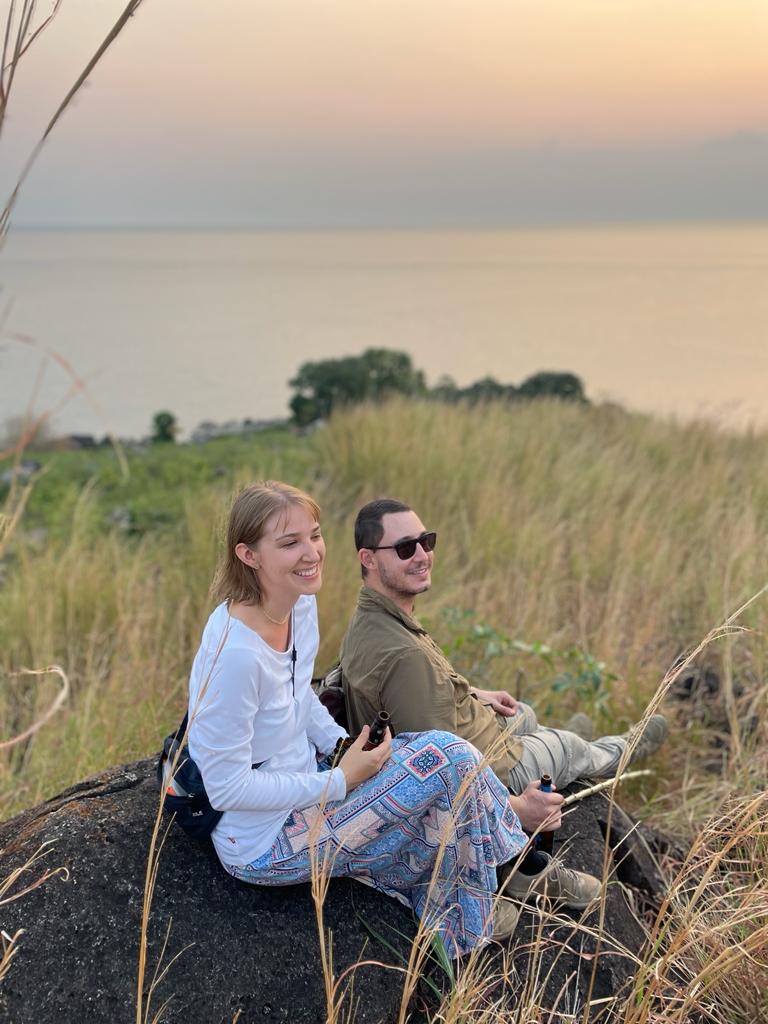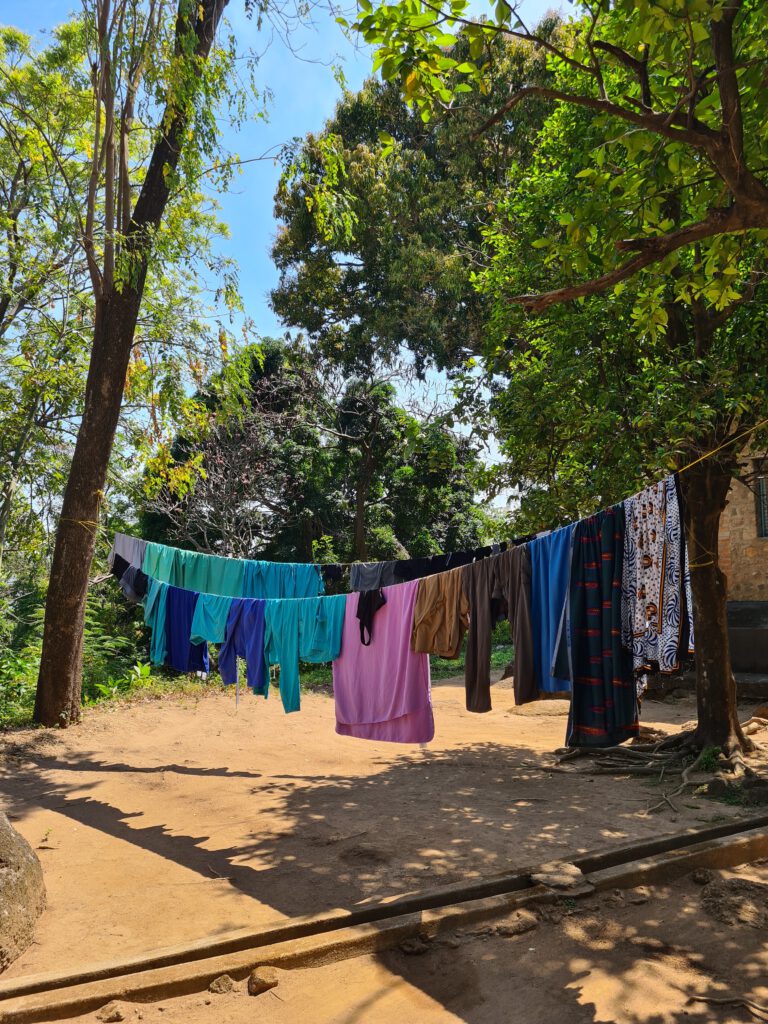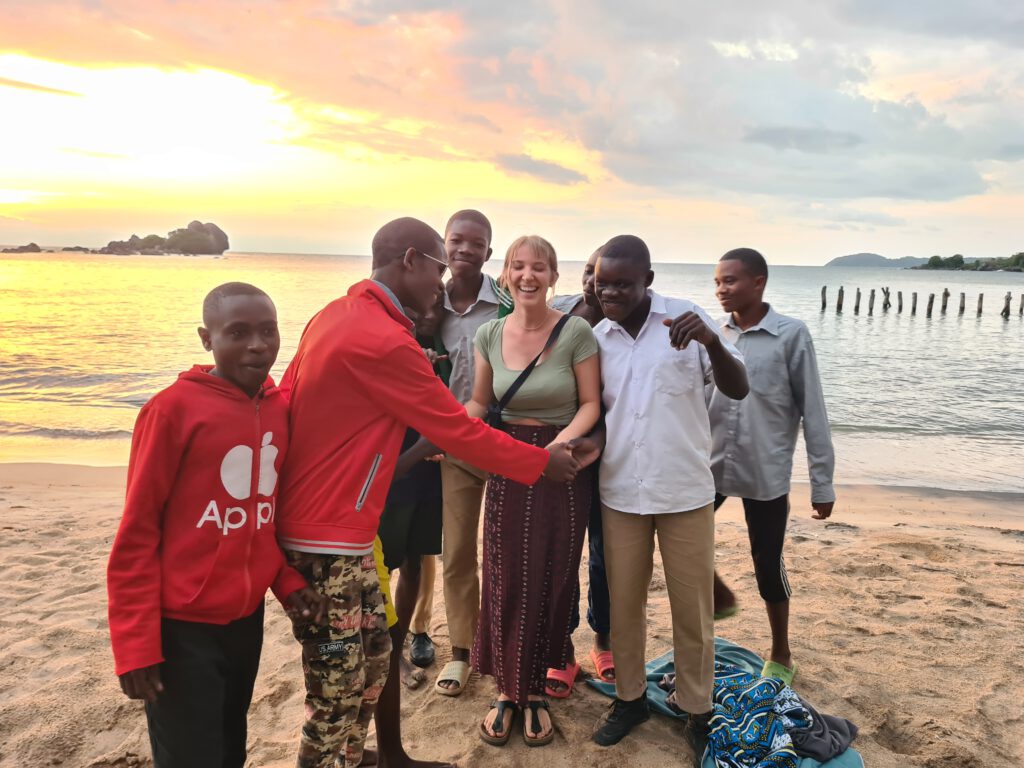Farewell to Liuli and Departure for Peramiho
Everything has to come to an end - unfortunately, so does our time in Liuli. It's a little hard to say goodbye after such a long and eventful time, but at least we don't have to say goodbye to Tanzania today. We make our way to Peramiho by bus.
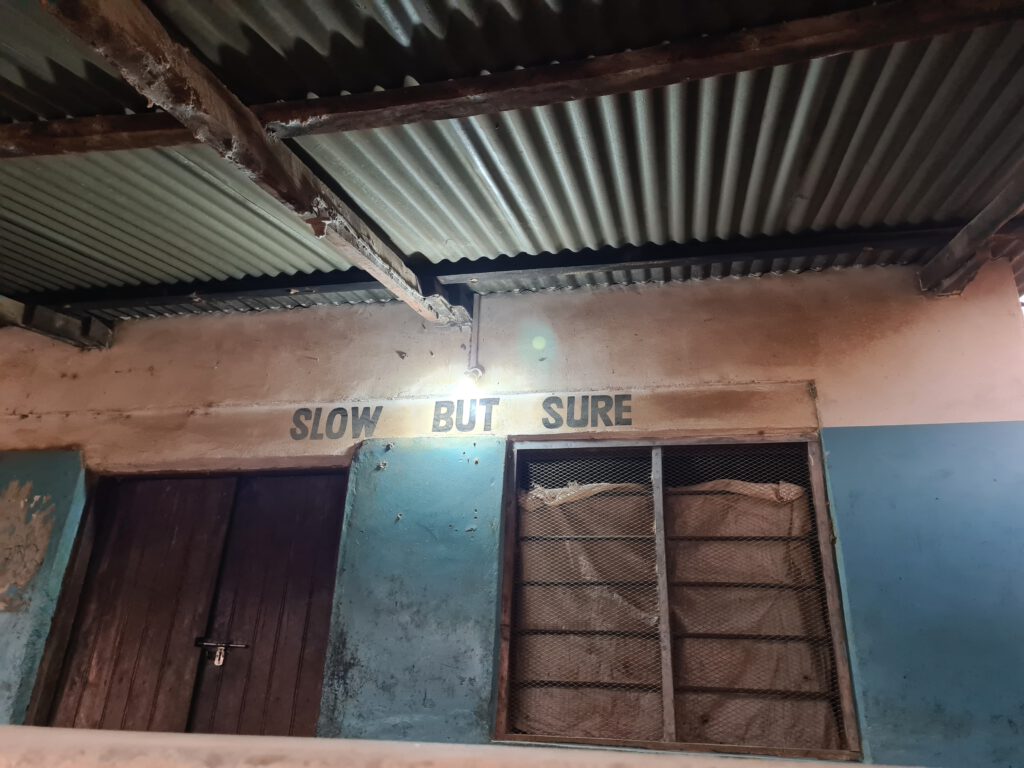
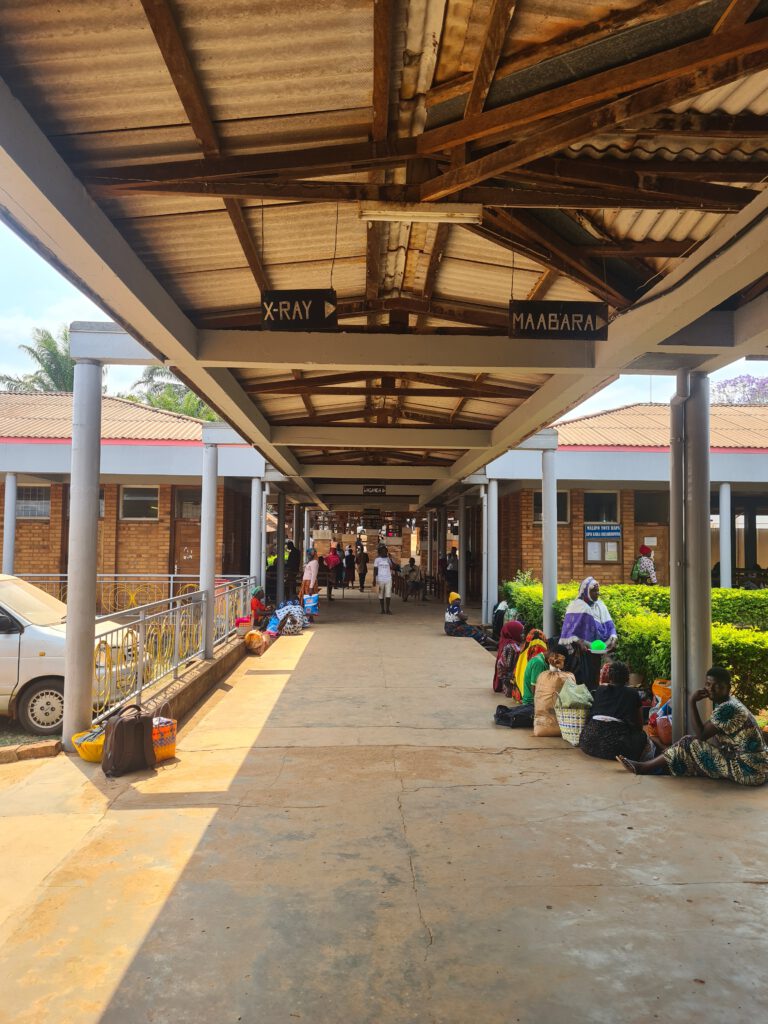
Dr. Monica, an internist from St. Joseph Hospital Peramiho, shows us around the hospital today. As in Songea, where we visited on the outward journey to Liuli, the hospital here is significantly larger and better equipped than St. Anne's, which probably explains the much higher number of patients in Peramiho. Incidentally, the hospital is run by the Roman Catholic Church, which obviously has more money than the Anglican Church, to which the hospital in Liuli belongs. I am particularly impressed by the neonatal intensive care unit, which has at least 15 beds. Each bed is equipped with an oxygen connection, there are numerous heat lamps and a separate room for kangarooing. Kangarooing is a form of therapy in which premature babies are placed against the naked chest of a parent. Skin-to-skin contact has been shown to improve temperature regulation and stabilize cardiovascular function, which reduces the risk of serious infections and mortality. In addition, the hospital has every specialty that a good referral hospital needs, including an eye department and even a brand-new dialysis unit. We transfer those patients to Peramiho who cannot be treated at St. Anne's, for example in the case of bleeding stomach ulcers, complex bone fractures or suspected tumors. There are only two problems with this: firstly, patients usually have to travel to Peramiho by bus - an arduous journey that usually takes around seven hours. Secondly, most people cannot afford to make such a journey, let alone receive further treatment at Peramiho Hospital.
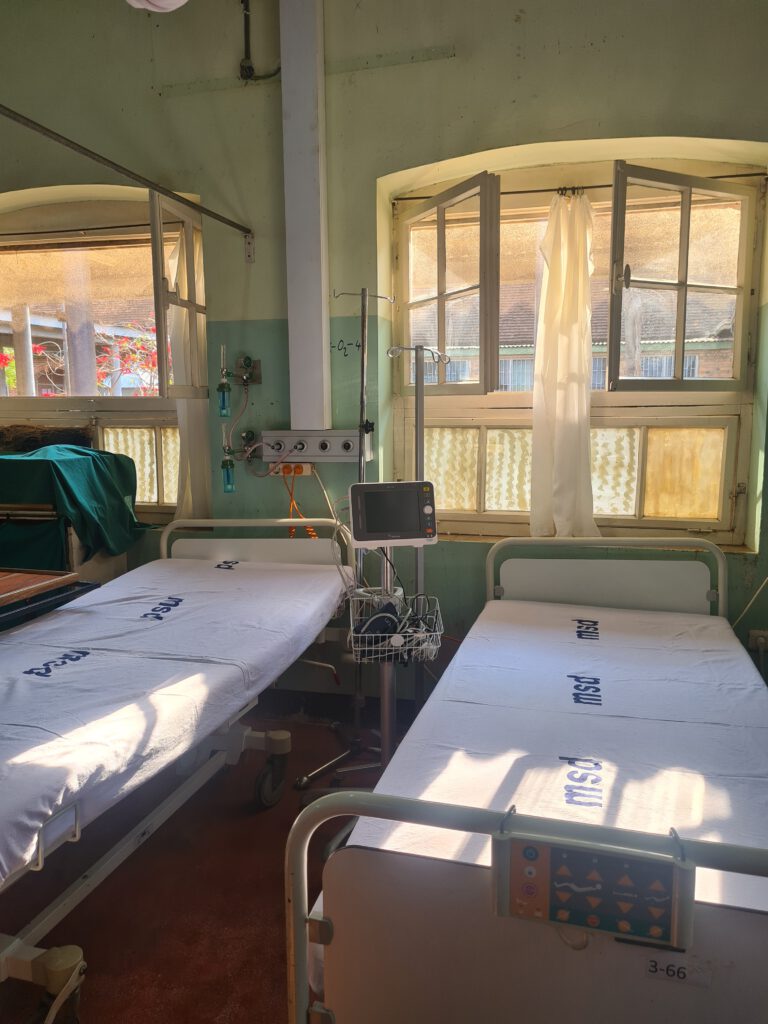
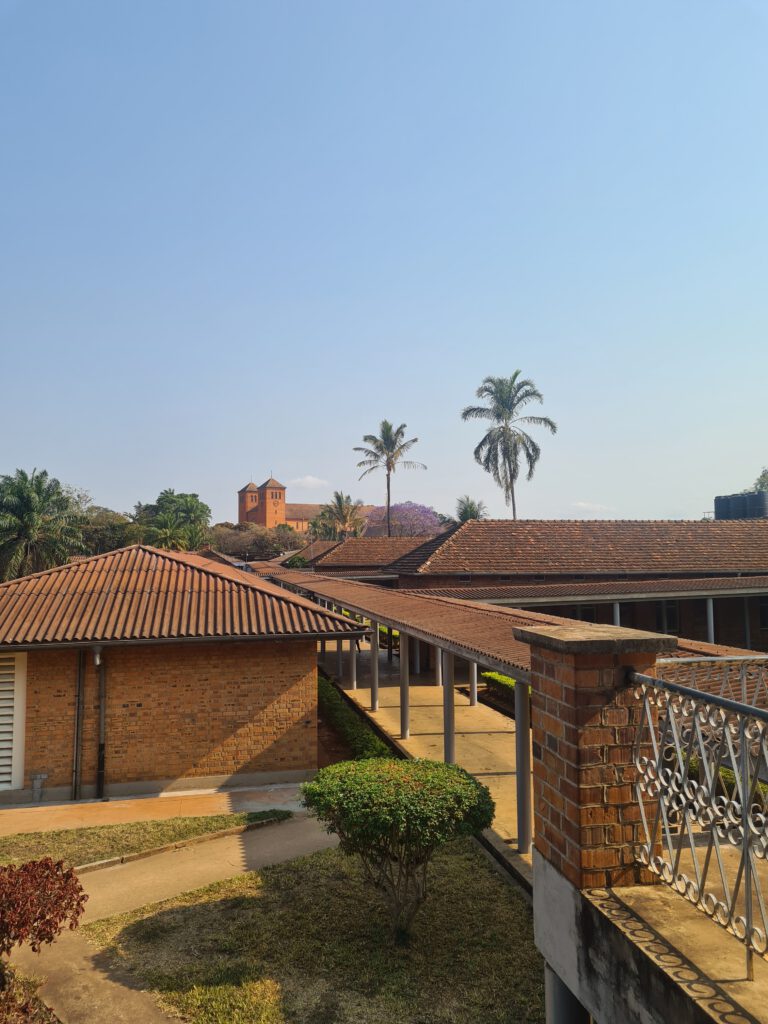
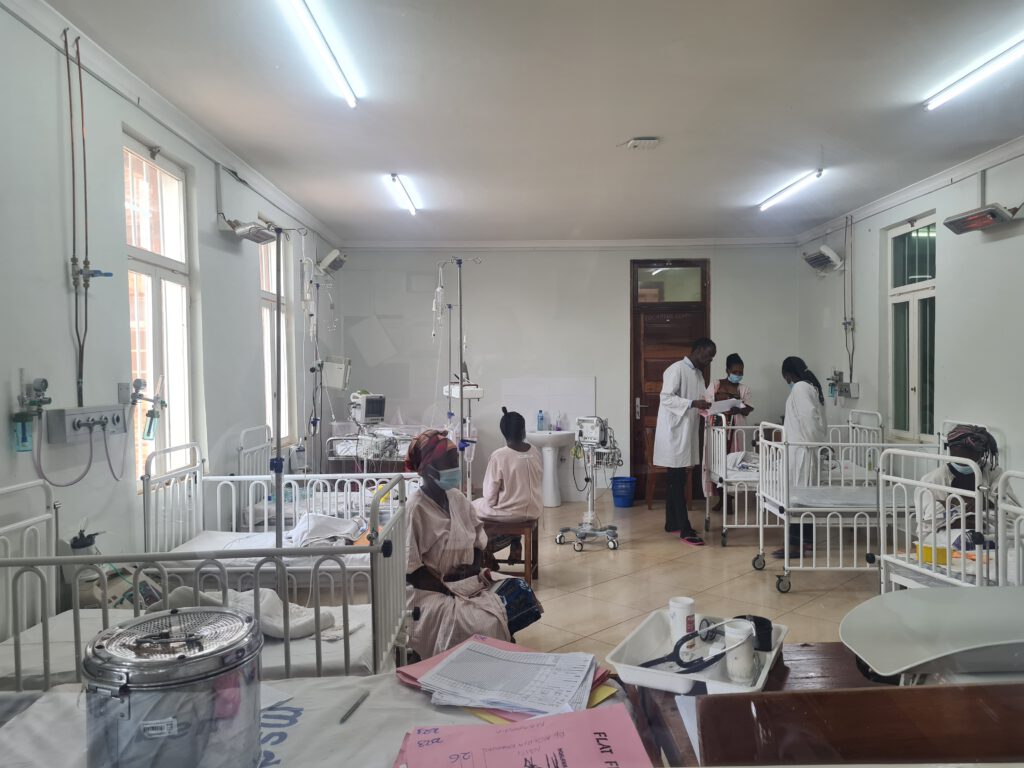
Back to Where it All Began
Our last stop is Dar Es Salaam - from here we also fly back to Germany. Before we arrive there, however, we have to take a 20-hour bus journey. As with the outward journey, we set off early in the morning (the bus leaves at 04:20) and breaks are few and far between. The fast pace, the uneven road and the loud music make it almost impossible to do anything other than look out of the window. But I think that's okay, because it allows me to take in the different landscapes once again. We start at Lake Nyasa and pass several wild-looking mountain ranges in succession. Once again, I like the diverse tropical vegetation and the reddish glowing slopes. As we drive through Mikumi National Park, we see many wild animals, especially giraffes at close range and, if we keep a safe distance, even the shyer elephants. Finally, we arrive in the densely populated, urban area of Dar Es Salaam. We have four more days here before the plane takes us back to Germany. We use the time to visit the companies where we want to buy medical equipment for the hospital.
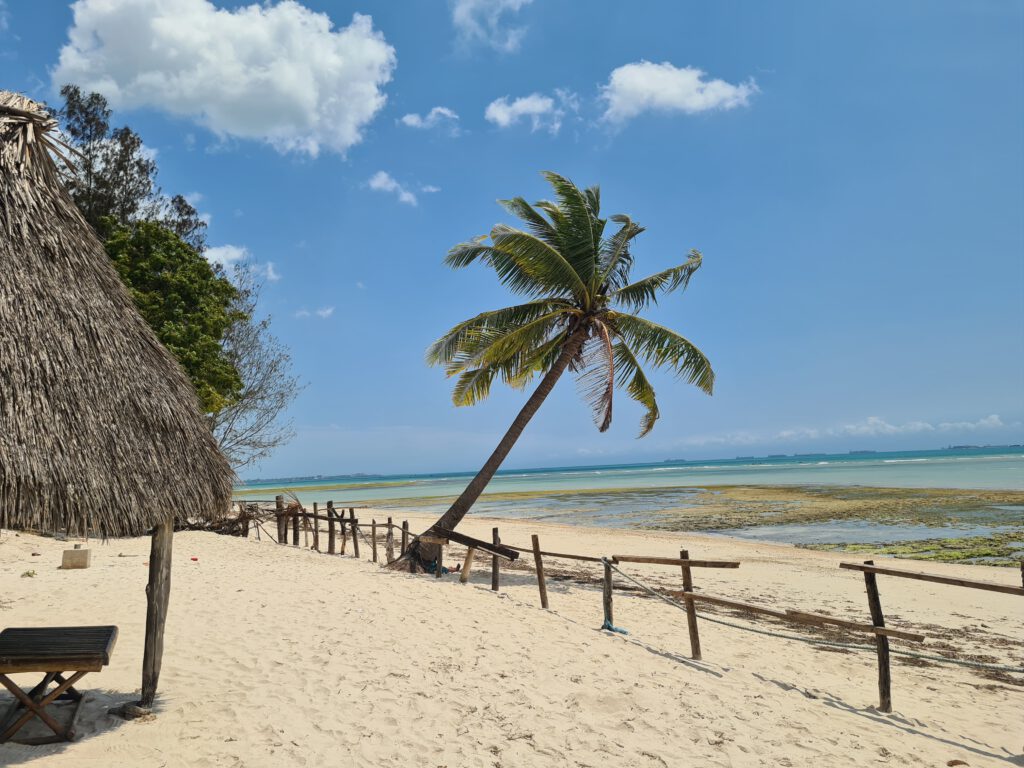
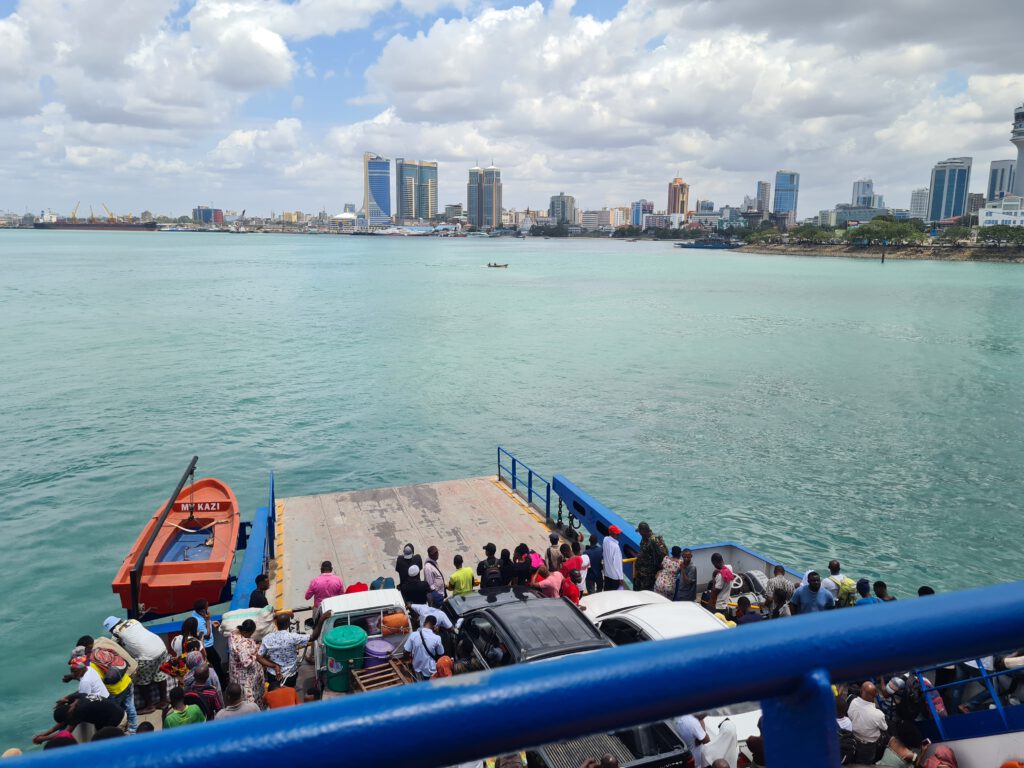
My second Dar es Salaam experience is very different from the first. Tim and I have no problem communicating in Swahili and the Tanzanians we meet on our errands in the city on behalf of the association really appreciate it. I feel much more at home than I did two months ago. How a common language connects us! But I'm also meeting more and more Africans here who speak English. For example, a group of young men who must be about my age approach me while I'm swimming. They ask me if I can teach them how to swim! I do my best to demonstrate and explain the movements to them. After a quarter of an hour of training together, which I really enjoy, I say goodbye with a kesho! see you tomorrow. Maybe I'll see them again for another swim training session.
Our stay in Dar Es Salaam is more than successful. We buy urgently needed medical equipment, such as a state-of-the-art 12-channel electrocardiogram, metal containers for sterilizing instruments, metal trolleys for distributing medication, a blood glucose meter and much more. All the purchases take two full days. At the end of the second day, we meet the German Christoph Bonsmann, who works on the Executive Board of Action Medeor a large German medical aid organization that sells and donates hospital supplies, among other things. Mr. Bonsmann is a very likeable and open person. He takes an hour to talk to us about St. Anne's Hospital in Liuli and shows great interest in our current projects and the difficulties we are facing in Liuli. Christoph Bonsmann also seems to be a man of action: he offers to donate an ultrasound machine to the hospital! He also promises further support and discounts for future requests to Action Medeor . How lucky! We helpers also need help from other people who want to support us with their time, their commitment or their donations.
Kwa heri Tanzania – Goodbye Tanzania!
Tonight is the night: we are flying back to Germany. My journey through Tanzania is over. Time for a summary. Not a final one, because the impressions will certainly linger for some time. What will I miss? First and foremost, the warmth of the people in Liuli. Every time I walked through the village, I was moved by their friendliness and the huge amount of trust they placed in me. I will miss the many children who enthusiastically ran up to us and wanted to meet us. As soon as a child saw me, they shouted „Msungu!“and there was a whole gang of children on the street, beaming at me happily. And I beamed back. The young people who approached me on the beach and asked for a photo of them because I have a smartphone. The joy when I showed them the photo of their group and asked if we could take another one together. I will miss the language, especially the variety of greetings and the fact that the words Asante und Karibu (thank you and you're welcome) are used so often. Swahili is a language of gratitude and welcome. In the end, I understood a lot and was able to hold simple conversations. The Tanzanians were genuinely happy about it, and that made me very happy too. I will miss working in the hospital very much. I am grateful for the impressions I am now taking with me and everything I have learned about tropical medicine and working as a doctor in a resource-limited setting. I am very happy about everything we have been able to experience and do here, about the projects we have been able to realize. I would like to take this opportunity to thank all of the association's supporters! Your donations have enabled us to purchase important medicines and medical equipment such as the new ECG. This directly improves patient care in the Nyasaarea! We were able to help with the renovation of the X-ray department and thus minimize the risk of unwanted radiation exposure. By installing fuses and lightning conductors, we were able to significantly increase the safety of patients and staff in the hospital. Defective washbasins were repaired so that staff can now carry out essential hand hygiene in every room. And much more, as you can read in my blog. Thank you very much for your support and trust! A patient once said to me: "I cannot give you anything, but God will pay you". Is there a better reward than that? My blog ends here - but the work for Liuli continues. Thank you for your interest in my journey! I would be delighted if you would also like to help the people in Liuli with a donation or, if you haven't already done so, with a Supporting Membership of our association. The annual sponsorship amount is freely selectable and every euro helps. Kwa heri, asante sana na karibu tena!
